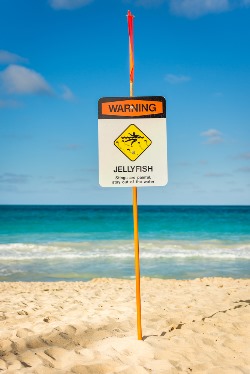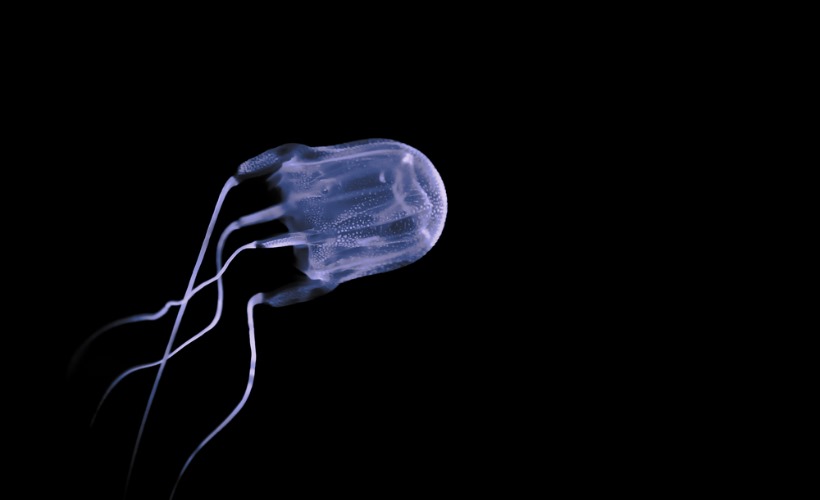I don’t remember how old I was, but I’m pretty sure I was at Kailua Beach. I was walking on the sand, sinking a little where the waves were breaking and turning into foam. As one wave receded around me, I felt a sharp thread of pain across the back of both ankles. I thought that I’d gotten tangled in fishing line. When I looked down at the wet sand, I was horrified to see an inch-long iridescent bubble with a long, string-like blue tail. I’d been stung by a box jellyfish.
While box jellyfish swim around just about every day,  Hawaii residents can count on an influx about eight to 10 days after a full moon. Maybe you’ve been unfortunate enough to show up at your favorite beach only to see jellyfish warning signs. This is why.
Hawaii residents can count on an influx about eight to 10 days after a full moon. Maybe you’ve been unfortunate enough to show up at your favorite beach only to see jellyfish warning signs. This is why.
After analyzing more than a year of jellyfish invasion data from the Waikiki Aquarium, local water safety officials and a marine scientist found a lunar and tidal pattern. Their theory is that certain full-moon-induced high tides carry the jellies over the reef and into the shallow areas along the beach. They’ll hang around and do jellyfish things for three or four days until the tide takes them back out to sea.
Box jelly stings can cause severe, life-threatening reactions, so avoid them whenever possible. Unfortunately, they’re difficult to spot in the water unless you’re specifically looking for them or they’re quite near to you. The best way to avoid them is to stay out of the water when they congregate. The Waikiki Aquarium posts an annual box jellyfish calendar based on the monthly full moon.

If you’re stung
Researchers at the University of Hawaii found that commonly recommended treatments actually worsen stings. Applying freshwater or urine (the latter is an old folk remedy), scraping off the tentacles, and applying ice to the wound won’t help. The results of their studies to determine the best and least-effective treatments for jellyfish stings were published in the journal Toxins earlier this year. Rinse the area with vinegar to deactivate the toxins or pluck the tentacles off with tweezers. After the vinegar, apply a hot compress. If a sting results in severe reactions such as difficulty breathing, vision problems, cramps, or irregular heartbeat, call your doctor or get emergency medical treatment immediately.
I don’t remember if I was treated for the jellyfish sting those many years ago. I don’t remember getting any serious reactions. I know without a doubt that no one applied that old folk remedy. I would have remembered that.




